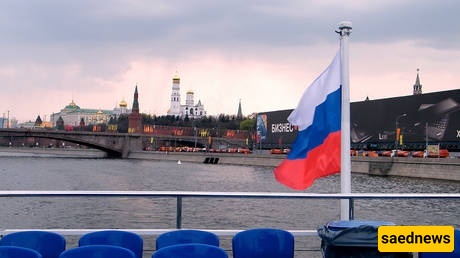SAEDNEWS: The Kremlin has announced that it no longer considers itself bound by the provisions of one of the last remaining nuclear arms control treaties with the United States. This new stance poses not only a threat to global security but may also mark the beginning of a renewed arms race between the world’s two major nuclear powers.

According to Saed News, citing Russia Today, Russia officially announced last week that it no longer considers itself bound by the terms of the "New START" treaty (Strategic Arms Reduction Treaty)—the last major agreement between Moscow and Washington aimed at limiting the two countries' nuclear arsenals.
This decision by the Kremlin comes at a time when U.S.-Russia relations have reached their lowest point since the Cold War, particularly in light of the war in Ukraine, sweeping Western sanctions, and the suspension of security cooperation.
History of the New START Treaty
Signed in 2010 by Barack Obama and Dmitry Medvedev, the New START treaty imposed strict limits on the number of deployed nuclear warheads, intercontinental ballistic missiles, and launchers on both sides. The agreement not only contributed to the gradual reduction of strategic arms but also stood as a symbol of nuclear cooperation between the long-time rivals.
Now, with Russia withdrawing from its commitments under the treaty, the primary framework for building trust and transparency in the nuclear domain is under serious threat.
Russia’s Stated Reasons for Withdrawal
In an official statement, the Kremlin cited U.S. military support for Ukraine, the deployment of missile systems near NATO borders, and the "hostile behavior of the West" as key reasons for its decision. Russian officials argue that remaining committed to the treaty while the U.S. is, in their view, indirectly engaged in a war against Russia is "irrational" and "dangerous."
Some Western analysts, however, believe the move is part of a broader Russian strategy to increase pressure on the West and strengthen its bargaining position in any potential future negotiations.
Global Security Implications
Russia’s withdrawal from the New START treaty has sounded a serious alarm for the international security order. Without the treaty, bilateral monitoring, field inspections, and strategic arms data exchange will come to a halt—eliminating a crucial layer of transparency and increasing the risk of military miscalculations or strategic misunderstandings.
Moreover, Moscow’s move could encourage other nuclear powers such as China, India, and Pakistan to accelerate the expansion of their own arsenals. In the absence of a cohesive arms control framework, the world may be entering a new phase of multi-polar nuclear competition.
Geopolitical Consequences
Alongside earlier decisions such as pulling out of the INF Treaty, Russia’s latest move reflects a broader breakdown of the post–Cold War global security architecture. Without such agreements, the world order is shifting away from multilateral cooperation and international law—and toward hard power and deterrence-driven dynamics.
Geopolitically, Russia is signaling that it will not back down under Western pressure and is capable of posing real threats to global stability. The message is aimed squarely at Washington, NATO, and their European allies.
The U.S. Response
The American reaction has so far been relatively restrained. White House officials have stated that despite Moscow’s decision, the United States will continue to abide by the treaty’s limits—a move likely designed to preserve diplomatic leverage and moral credibility.
However, many analysts argue this unilateral commitment is unsustainable if Russia continues expanding its nuclear arsenal. Sooner or later, Washington may be forced to reassess its strategic posture and military options.
China’s Role and the Future of Arms Control
One of the major emerging challenges in the arms control landscape is the role of China. To date, Beijing has refused to participate in U.S.-Russia bilateral treaties, insisting that its nuclear development is a matter of national sovereignty.
Now, with Russia walking away from New START, China has even more reason to accelerate its nuclear modernization—potentially disrupting the strategic balance in East Asia and complicating the global deterrence framework.
Is There a Path Back?
Despite the increasingly polarized international climate, diplomatic opportunities still exist. The experiences of the 1980s and 1990s demonstrate that even amid severe tensions, nuclear negotiations can serve as a platform for de-escalation and rebuilding trust.
Achieving this, however, would require genuine political will from both sides, a de-escalation of hostile rhetoric, and the establishment of open and backchannel lines of communication.
Conclusion: A Global Threat with Long-Term Consequences
Russia’s departure from its last major nuclear arms treaty with the U.S. is more than just a tactical response to the Ukraine war—it represents a strategic shift in the global security paradigm. This development not only reshapes U.S.-Russia relations, but also threatens to alter the trajectory of nuclear competition and global peace.
At a moment when the world teeters on the edge of renewed great-power rivalry, the need for robust arms control, trust-building, and a return to the negotiating table is more urgent than ever.
Without that, we may soon wake up in a world once again overshadowed by the looming specter of mushroom clouds.

